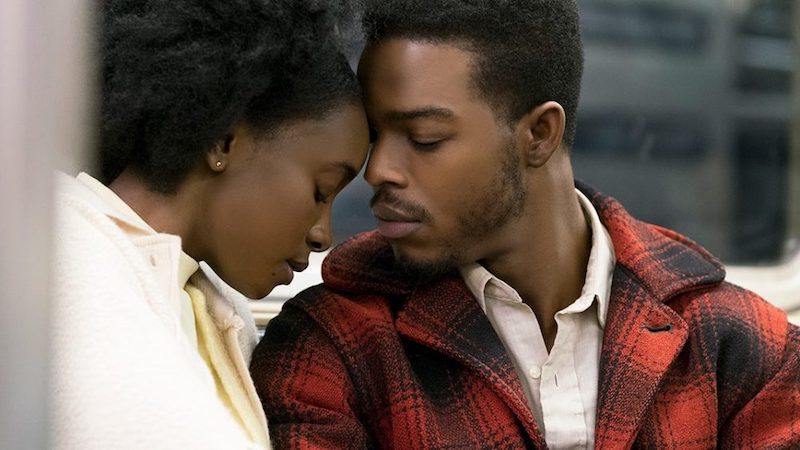
Wearing his influences on his sleeve—Wong Kar Wai, Todd Haynes, Martin Scorsese—yet nonetheless speaking in a cinematic language all his own, Barry Jenkins has solidified his place as one of the best directors of the 21st century. His follow-up to Moonlight is an adaptation of the James Baldwin novel about the pregnant Tish (Kiki Layne) who fights for her man “Fonny” (Stephan James) when he is falsely imprisoned for rape.
The film, set in Harlem in the early 1970s, ingeniously cuts between scenes of Tish and Fonny’s tender, sexy, bohemian romance and the frustrating aftermath of his imprisonment. We watch as this beautiful young man—so good, so filled with light and promise—slowly begins to lose hope.
Above all else, If Beale Street Could Talk is a love story—Fonny and Tish were friends since childhood (“flesh of each other’s flesh,” she says in the voiceover) and the romance that develops between them feels innocent, pure, inevitable. (The first time we meet them, as young adults, they are wearing matching outfits.)
The film is also about family—both the ones we are born into and the ones we choose. When Tish breaks the news that she is pregnant (Fonny is already in jail at this point), her mother, Sharon (Regina King), takes a moment and then wills herself to celebrate. When Tish’s father (Colman Domingo) comes home, Sharon arranges for a toast. “Drink,” she commands, lovingly but firmly. And the slightly baffled man has no choice but to raise his glass, too.
We also meet Fonny’s best friend Daniel (wonderful Brian Tyree Henry), a gentle bear of a man just out of jail for a crime he didn’t commit, who regards Fonny and Tish with a mixture of warmth and quiet envy. He sees Fonny as a success story from the streets. It’s impossible for him to imagine that his artsy friend—with his beautiful girlfriend, his sculpture studio, and his domestic serenity—will soon fall prey to fate even worse than his own.
Indeed, the film is also about injustice, especially for African Americans but also for immigrants and other outsiders. The woman who accuses Fonny of rape is young and Puerto Rican and has been exploited and victimized by the patriarchy, too. Other outsiders become allies. An Orthodox young man (Dave Franco) rents a loft apartment to Fonny and Tish simply because “I dig people who love each other,” he says. A thickly accented woman who owns a bodega defends Fonny from a racist cop. But their support isn’t enough to save him from a system designed to oppress and destroy.
If Beale Street Could Talk is gorgeous, saturated with rich tones of deep red and mustard and brown and artful plumes of smoke (everybody smokes). The mood is enhanced by Nicholas Britell’s haunting, jazzy score—lots of strings, saxophones, and muted horns. The film manages to be both sad and uplifting. Like all of Jenkins’ films, If Beale Street Could Talk will alternately stir your blood and soothe your soul.
